The following was published in The Observer, January 2, 1858, on the occasion of the colony having attained its majority. A festival was held at Glenelg on December 18, 1857, to commemorate the event:-
From the diary of Mrs. Robert Thomas, written the day after the Proclamation, December 28, 1836 :-
This was a proud and, I hope, will be a happy day for South Australia. Early in the morning it was announced that the Buffalo had arrived from Port Lincoln, accompanied by the Cygnet, which had gone thither to escort the Governor, Captain Hindmarsh, to Holdfast Bay. This made us all alive, and soon after Mr. Thomas received notice to attend at the tent of Mr. Gouger, the Colonial Secretary, where His Excellency the Governor was expected to be at 3 o’clock to read his Commission and [tooltip color=”grey” text=”Note: Mary is not correct in this. The colony was created in England by the Letters Patent and the South Australian Act.”] proclaim the colony[/tooltip]. Mr. Thomas then went to the Company’s store and soon returned with a request that he would procure a ham, as Mr. Gilbert was not provided with one, which was done, and a fine Hampshire ham was dressed for the occasion. It was also requested that we would prepare ourselves to meet the procession, as all who could were expected to attend. We went accordingly, and found assembled the largest company we had yet seen in the colony, probably two hundred persons.
The Governor’s Private Secretary read the Proclamation under a huge gumtree, a flag was hoisted, a party of marines from the Buffalo fired a [tooltip color=”grey” text=”A rifle salute. In French means “fire of joy”.”] feu-de-joie[/tooltip], and loud hurrahs succeeded. A cold collation, of which we partook, followed in the open air.
The Governor was very affable, shaking hands with the colonists and congratulating them on having such a fine country. After the repast he mounted on a chair and gave the first toast, “The King,” which was received with three times three, and followed by the National Anthem, led by Mr. Gilles. The old royal appellation of “George ” was so natural to Englishmen, after four successive reigns of Kings of that name, that it was forgotten at the moment that a “William” was now on the throne, and the first line was sung as formerly, “God save great George, our King,” which excited a smile. Yet I believe that William the Fourth has not more loyal subjects throughout his wide dominions than those who were there assembled to welcome the arrival of the first Governor of South Australia. The health of His Excellency was then proposed and drunk with loud and universal cheering, followed by “Rule, Britannia.” Then “Mrs. Hindmarsh and the Ladies ” was proposed by Mr. Gilbert, and also received great applause, as did several other toasts.
The Governor then gave the following:- “May the present unanimity continue as long as South Australia exists,” which made the plain ring with acclamations. At about 5 o’clock His Excellency and lady departed to the ship, and some officers and others followed in another boat. They all seemed highly delighted with our village, as I may call it, consisting now of about forty tents and huts, though scattered about without any regularity. Everyone fixed his present abode wherever he wished, knowing it would not be of long duration. We took coffee in Mr. Kingston’s hut, and returned home about 7 o’clock.
The evening, as well as the day and the preceding one, was very hot, and the night continued so, insomuch that it was impossible to sleep, the thermometer having been sometimes upwards of 100 degrees in the tent. It seemed as if some of the colonists did not even go to bed, for we heard singing and shouting from different parties at intervals till long after daylight. Here I may remark that from the exceeding stillness of the night, except when the wind disturbed the trees near us, we could distinctly hear almost every sound that occurred, though at a considerable distance.

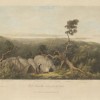
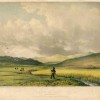
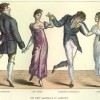
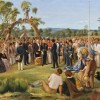
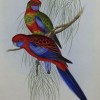
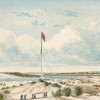
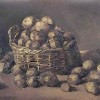
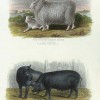
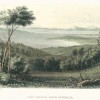
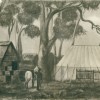
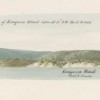
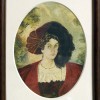
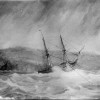
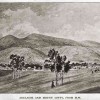
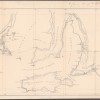
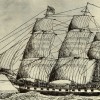
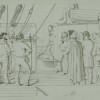
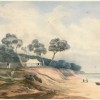
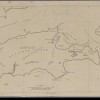

Recent Comments